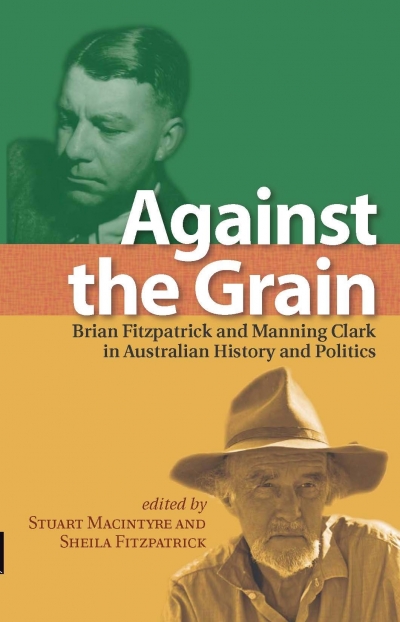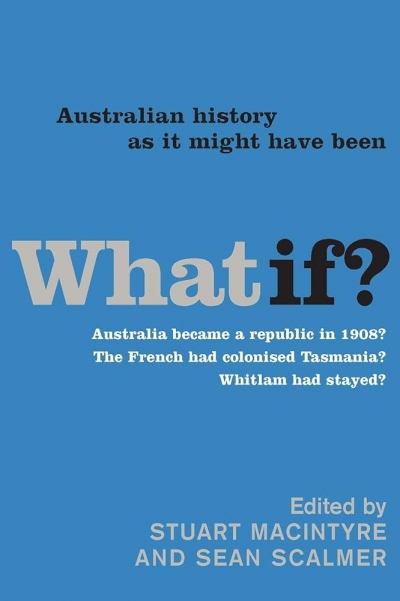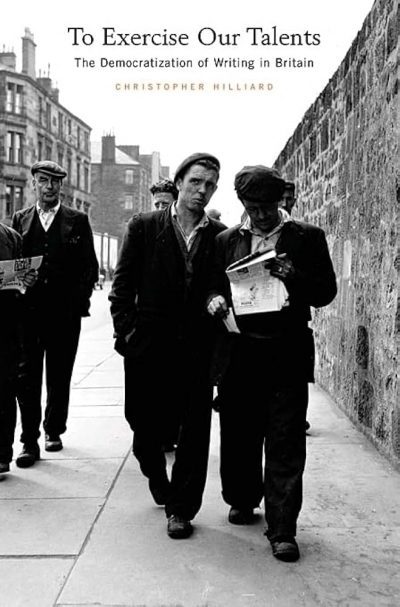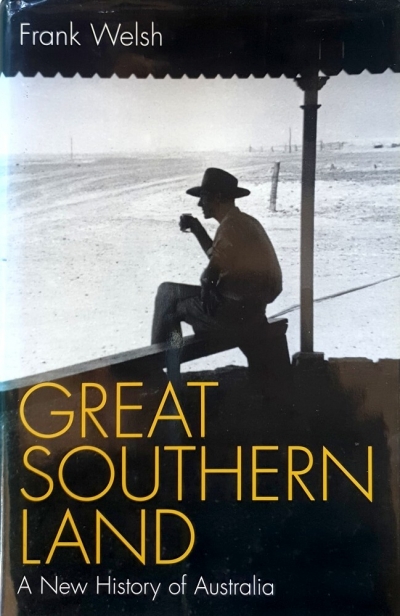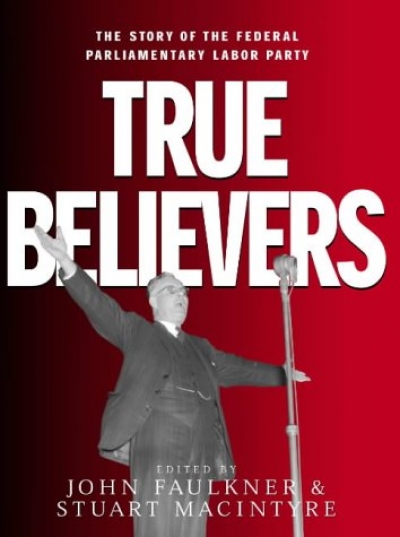Stuart Macintyre
Against the Grain: Brian Fitzpatrick and Manning Clark in Australian history and politics edited by Stuart Macintyre and Sheila Fitzpatrick
by Nick Fischer •
Australian Historical Studies edited by Joy Damousi & Australian Historical Studies edited by Shurlee Swain and Stuart Macintyre
by Lyndon Megarrity •
What If?: Australian history as it might have been edited by Stuart Macintyre and Sean Scalmer
by John Hirst •
To Exercise Our Talents: The democratization of writing in Britain by Christopher Hilliard
by Stuart Macintyre •
Great Southern Land: A New History of Australia by Frank Welsh
by Stuart Macintyre •
The History Wars by Stuart Macintyre and Anna Clark & Whitewash edited by Robert Manne
by Tony Birch •
James Griffin and John Wren
Dear Editor,
Some of your readers will be familiar with the problem. You set aside a few days to get to the National Library to pursue a research project. You obtain the manuscripts, order the material in the Petherick Room, and settle down to uninterrupted industry, when an avuncular bore with too much time on his hands buttonholes you and bangs on about his own project. You do not wish to appear uninterested, yet hope that the windbag will leave you alone and get back to his own table, perhaps even write the book that he rehearses so insistently as the precious minutes tick by.
... (read more)True Believers: The story of the Federal Parliamentary Labor Party edited by John Faulkner and Stuart Macintyre
by Ross Fitzgerald •
The Reds: The Communist Party of Australia from origins to illegality by Stuart Macintyre
by Ross Fitzgerald •
Charles Perkins: A biography by Peter Read
by Stuart Macintyre •

